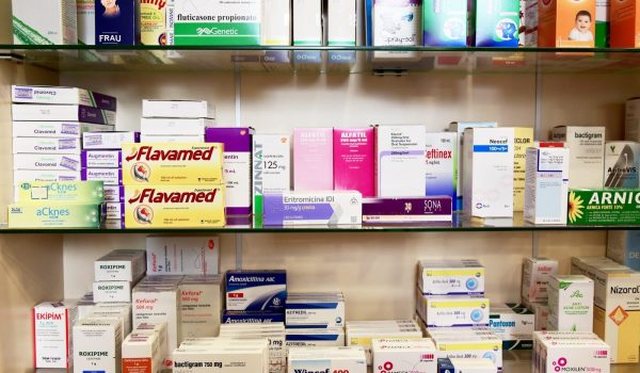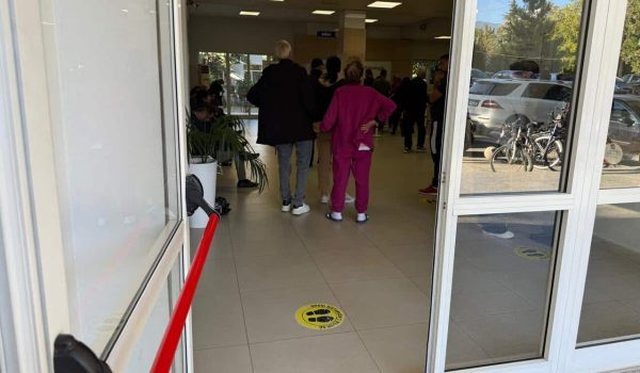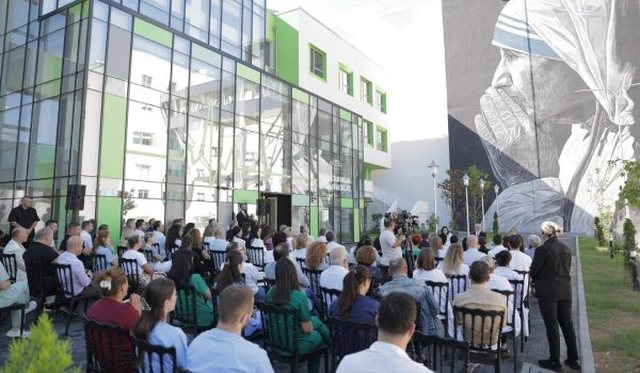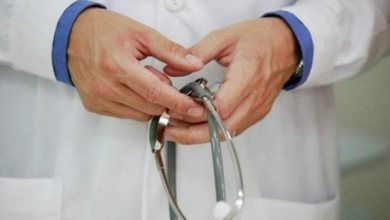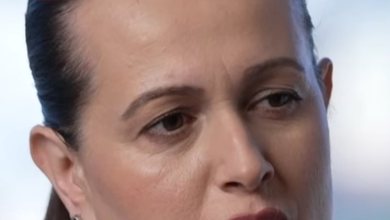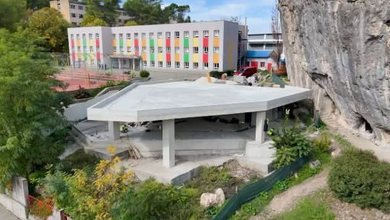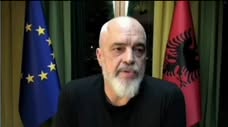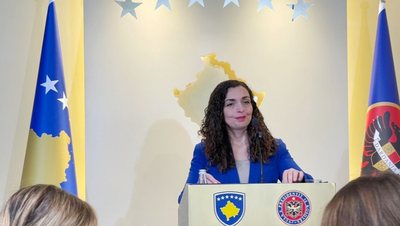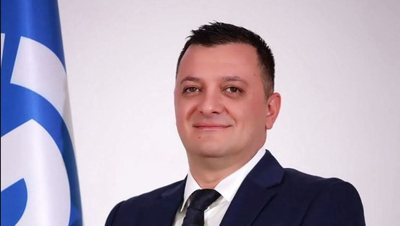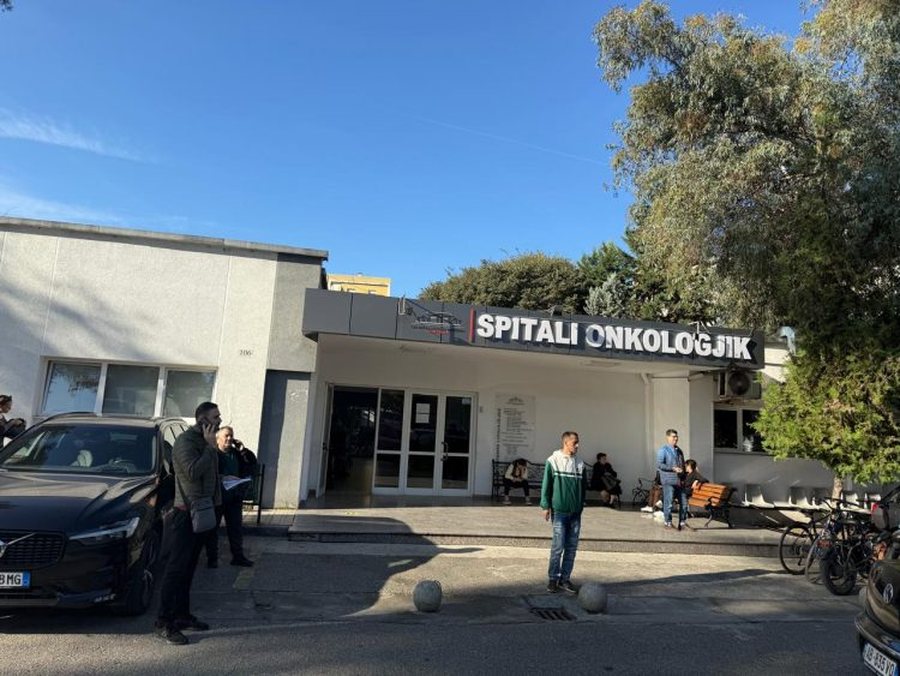
Delays and shortages of medicines in the public healthcare system force hundreds of Albanian women each year to seek costly private treatment for breast cancer.
It was November 2023, when Vera* went for a routine breast check. Unlike other times, when she would return home calmly with the answer that there was nothing to worry about, that autumn day changed her life forever.
The doctor, upon examination, found a mass in her breast, suspecting a tumor, and asked her to have a scan to clear up any doubts.
With the shock of a possible diagnosis and fear spreading with every passing minute, Vera rushed to the Oncology Hospital at the Mother Teresa University Hospital Center (QSUNT) to book an appointment to have the scan, but the situation she faced was not at all optimistic.
As she recalls, when she received the answer that she had to wait 6 months for the scanner, the next option was to go to a private hospital.
"I was only going to have the scan in six months. At that moment I was alarmed and wanted to do it as soon as possible," recalls Vera, who goes on to say that she immediately went to one of the private hospitals, aware that she would have to pay a lot, but it was the only option to avoid risking her health.
After completing all the procedures and examinations requested by the doctor within a day, she received a diagnosis of breast cancer, for which the public hospital would determine after six months. This waiting time, for a patient with a tumor disease, translates into a deterioration of the health condition, up to and including life-threatening.
After the diagnosis, Vera continued her initial treatments at a private hospital, including surgical interventions. After her condition stabilized, she decided to return to the Oncology Hospital for further treatment, as the costs in private were high and with the hope that the public healthcare system would not let her down again.
But history repeated itself. Vera remembers having to wait for hours for chemotherapy sessions and not always having the medication.
"In addition to always having to wait in line for 2-3 hours to have chemotherapy sessions, there were not always medications available. I had to obtain them privately and inject them in the state," she says. Faced with this situation, Vera was forced to continue treatment again in a private hospital.
Vera's case is not isolated. Hundreds of women in Albania diagnosed with breast cancer face the same reality every year: the lack of oncology drugs in the public system, forcing them to seek relief and treatment in the private system or abroad.
From the online questionnaire about the challenges of breast cancer patients in Albania, out of 45 respondents - 29 of whom were women affected by breast cancer, 14 relatives of the patients and two health professionals - it results that only 3 in 5 women admit to receiving treatment only in the public system, while the rest are treated in private hospitals, abroad or combined.
"Here (Albania) it's very difficult," said one of the patients who receives treatment abroad but wished to remain anonymous.
The questionnaire revealed that 37.2% of the patients included declared that they have been treated for breast cancer for more than three years, a long ordeal not only personal, but also family that confronts these women with serious social and economic challenges, while only a small part of the participants admitted that they have faced delays in receiving treatment. But this has not happened thanks to the full services offered in the public system, after being contacted to tell their story, they stated that in order to avoid delays, they were forced to receive treatment by paying out of pocket, by providing medications privately or by going to private hospitals.
Such is the case of Alina, who says she was forced to pay under the table at the Oncology Hospital to expedite the preparation of the necessary documentation.
"I paid the staff secretly to get the papers quickly," she recalls, indicating that she is now being treated at a private hospital and emphasizing that in 5 months she has spent around 6,000 euros on treatment.
Lack of medicines, an old wound of the Oncology Department
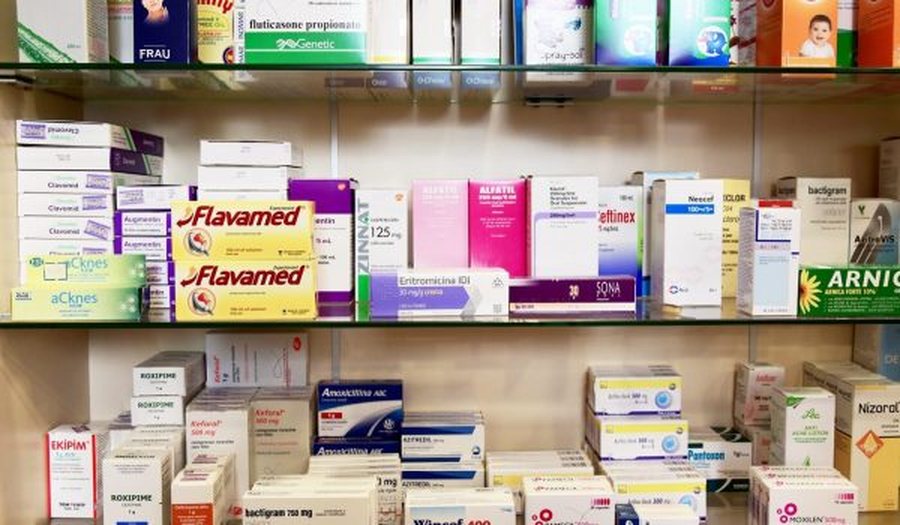
The lack of antitumor drugs and all the complex problems of the Oncology Hospital have been acknowledged by the new Minister of Health and Social Protection, Evis Sala.
In her first public appearance, on September 20, 2025, the minister promised 100% reimbursement of oncology drugs, calling this a "personal and professional challenge."
"I will focus on the full reimbursement of Oncology drugs. It is a challenge of my duty and career, but I believe it is feasible and in line with the government's vision," she stated in her presentation to QSUNT.
This promise, although welcome, comes as a tacit admission that oncology patients have for years been forced to pay out of pocket for drugs that, according to law, should be guaranteed free of charge by the state.
But the gap between patients with tumor diseases and a fair and equitable health service is greater than that.
These drugs, which are the "only weapon" in the fight against cancer, are often missing from hospital pharmacies. This problem has been documented by the Supreme State Audit Office (SSA) in its audit for the period 2021–2025.
According to the report, 49 cases of delays in the supply of vital medicines were recorded, while for some essential medications, such as Actinomycin D and Phesgo (the latter essential for women with breast cancer), there was no active supply contract.
"These shortages pose a serious risk of treatment interruption, negatively impacting clinical effectiveness and meeting oncology treatment standards," the report states.
According to the Albanian Supreme Audit Office, this situation indicates uncertainty in the functioning of the pharmaceutical supply chain and weaknesses in the supervisory mechanisms of the institutions responsible for guaranteeing equal access to medicines for patients with tumor diseases.
Despite these stubborn facts, the Mother Teresa University Hospital Center (QSUNT), in a response to Gazeta Shëndeti, denies that there has been a shortage of medications for women with breast cancer, saying that this category of patients has the widest coverage with treatments compared to other tumors.
"Breast cancer has the widest coverage of treatments compared to other tumors and QSUNT provides the best treatment in our country for this pathology. Each medication is taken according to the requirements and planning of the relevant services."
Timely treatment, the key to winning the battle for life
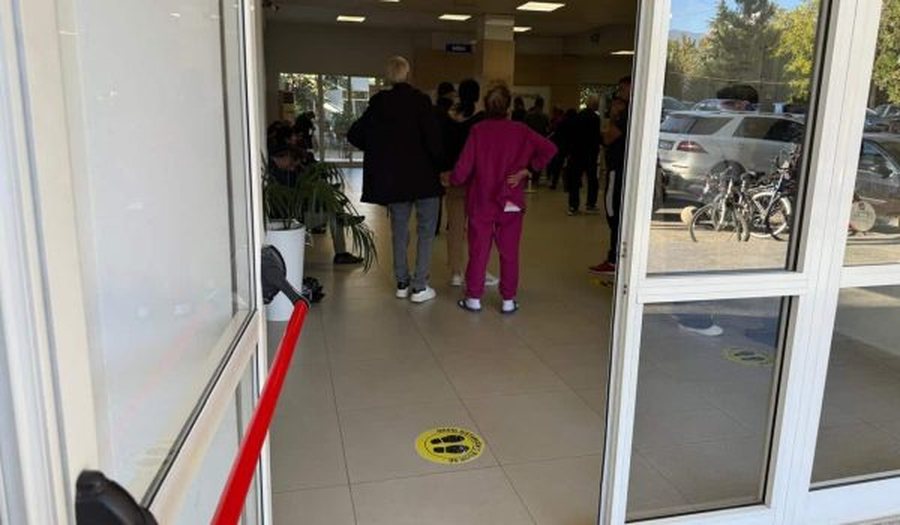
According to the World Health Organization (WHO), 2.3 million women were diagnosed with breast cancer worldwide in 2022, and of these cases, 670,000 deaths were recorded. During the same year, 830 cases were recorded in Albania, a figure that shows that attention to this very widespread disease among women should be maximum.
In the first half of 2025 alone, 391 new cases of breast cancer were diagnosed at the Mother Teresa University Hospital Center, according to data provided to Gazeta Shëndeti by QSUNT.
All of these patients deserve timely and appropriate treatment, but at the Oncology Hospital, the reality speaks differently.
The Albanian Supreme Audit Office (ALSH) has found that there have been cases of patient confusion and the administration of medications other than those prescribed in the prescription for breast cancer.
"Cases of duplicate prescriptions and confusion between patients have been identified. Cases of use/discharge of the drug Trastuzumab ("Herceptin") have also been identified in cases where Pertuzumab + Trastuzumab ("Phesgo") was requested in the prescription. It turns out that there is no clear definition/division in the official breast cancer treatment protocol regarding the degree of effectiveness of one drug compared to the other," the report states.
Faced with these facts, the head of the Radiotherapy Unit at QSUT, Dr. Orges Spahiu, emphasizes the need to strengthen the patient data structure.
"A key priority is to strengthen the data structure through the digitalization of the patient record, which should include not only clinical data, but also information on the treatment strategy. This would create better predictability for therapeutic needs, both in medications and other elements of treatment, informing short-, medium- and long-term planning and management," he tells Gazeta Shëndeti.
Opposition MP Erisa Xhixho states that health services and access to health services is a fundamental right for citizens, while emphasizing that urgent investments in medicines and medical equipment are needed.
"Investment in medicines and medical equipment is urgent and this is undoubtedly to respect the protocols for treating this disease. If the medication is not taken on the appointed day, the consequences for the patient are very great."
This is also stated by Dr. Orges Spahiu, who emphasizes that immediate treatment after diagnosis is essential for survival and therapeutic effectiveness.
"Once the diagnosis is made, coordinated and rapid treatment, without unnecessary delays, plays a crucial role. The earlier the therapy is started, the greater the chances of controlling the disease and providing more effective treatment options," explains the oncologist.
But Arta's mother*, a breast cancer patient, had to wait several times to receive service and treatment because the scanner equipment was broken, and in some cases, medication was missing.
"My mother had delays in treatment due to the scanner breaking down, when she was doing contrast scans. We were forced to wait. Another time the equipment broke down and we waited again. Another hair growth medicine that we urgently needed was not available in Albania. I bought it in Germany, it cost over 1 thousand euros," she recalls.
Increase in statistics, decrease in budget
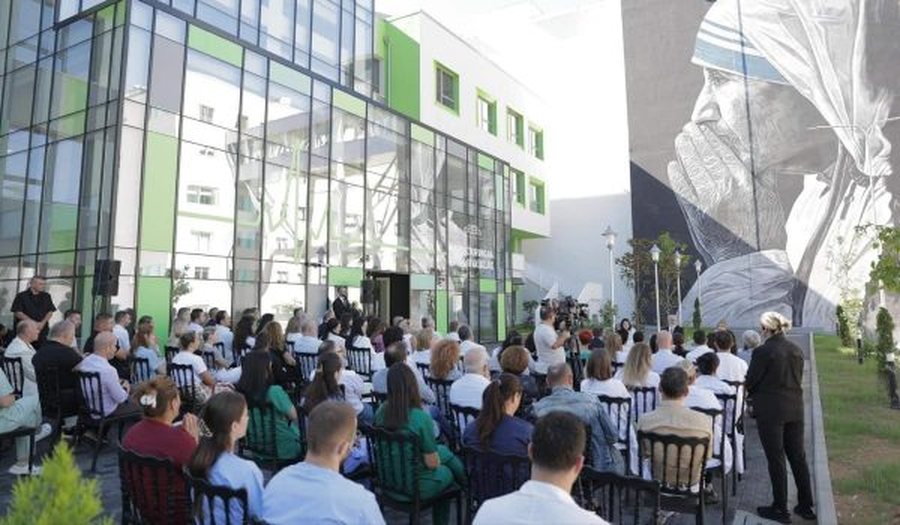
Although the budget allocated to the Ministry of Health and Social Protection at the beginning of the year is low, below 3% of GDP, it is worrying that with the frequent revisions during the year of the government budget, the health sector is again experiencing unjustified and justified cuts by the responsible institution.
In 2025, healthcare spending is recorded at 80,730 million lek. But in the following year, according to the MTBP, these expenditures fall to 80,613 million lek, reflecting a decrease of about 117 million lek, a clear signal of the Government's lack of priority for this sector.
The draft medium-term budget for 2026-2028 foresees a progressive reduction in spending in relation to GDP and overall government spending, as well as the failure to achieve the objectives of the National Health Strategy.
The budget cut raises serious questions about the medium-term commitment of responsible institutions to guarantee sustainable and sufficient funding for healthcare.
This means more out-of-pocket expenses for citizens' health. As Vera points out, the medicine she had to obtain from the hospital was purchased in the private sector, resulting in her treatment costs of around 5,000 euros.
"It's not like you save a lot as a patient in a state hospital. That's why I decided to buy the treatment and medicines where I was, because the injection didn't cost anything, the medicine did. One session cost me 180 thousand old lek (old)," she recalls.
So, in addition to the emotional and physical shock, breast cancer patients must also bear the costs of treatment, especially those who come to QSUNT from the districts, like Arta and her mother.
"Dad moved to Tirana because mom couldn't afford the trip. We were forced to buy a house in Tirana across from the Oncology Department, where we lived for 6 months. The queue was terrible at the Oncology Department. There were times when she had to wait standing up."
The cases of these women are hundreds of thousands of patients diagnosed with tumor diseases each year and funding is needed. If there is no budget review, there is a risk of deepening the problems that directly violate the right to equal quality healthcare for all citizens.
Every day counts, for your life!
Every year, during the month of October, Albania joins the global campaign against breast cancer.
Under the motto "Every day counts, for your life!", the Institute of Public Health (IPH) conducts awareness-raising campaigns and activities, with the aim of encouraging women and girls to undergo regular check-ups for the early detection of breast cancer.
In collaboration with regional public health directorates, the IPH also offers free mobile mammography examinations in all cities that do not have such equipment.
During this year, 4096 examinations were performed, while in 2024 3678 examinations were performed, an increase that proves the positive effect and importance of these campaigns for raising women's awareness that early detection saves lives.
The month of October should not only serve to raise awareness about breast cancer, but also to amplify voices, share inspiring stories, and drive change.
Every life is precious, but every woman affected by breast cancer deserves the support and care necessary to face this challenge. /BIRN/
*Names have been changed to protect the patients' identities


